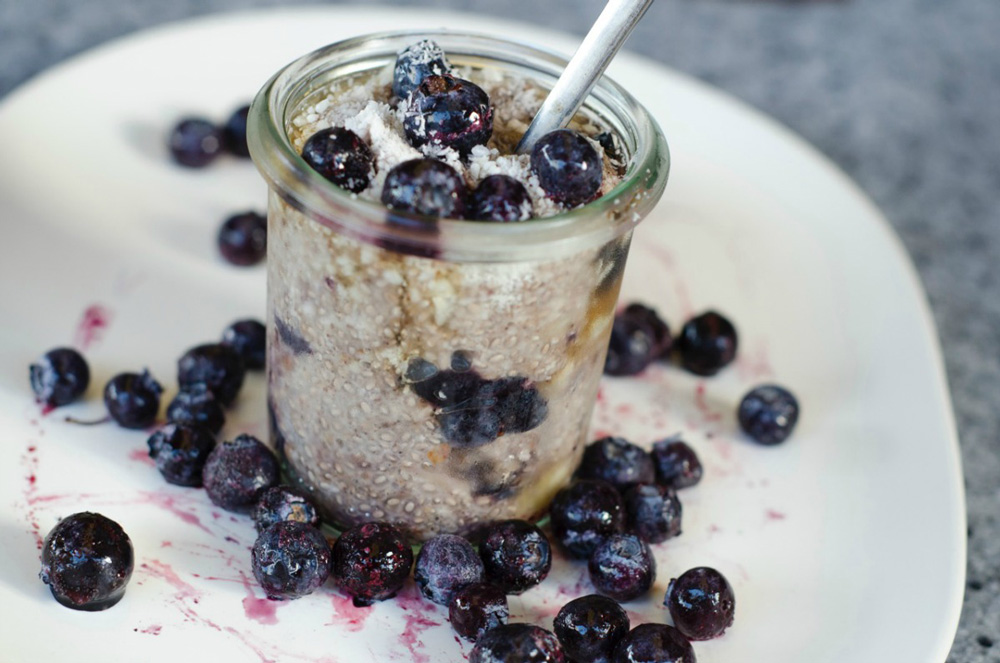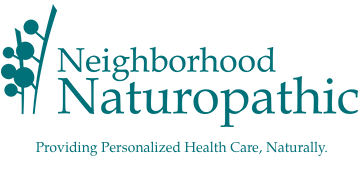As a naturopathic doctor with a primary focus on women’s health, I am no stranger to thyroid dysfunction in clinical practice. This is mainly because women are 5 to 8 more times likely to have thyroid disease than men. Thankfully, many women will respond well to simple diet and lifestyle changes. For women with more advanced or complicated thyroid disease, diet plays an essential role in resuming optimal thyroid function along with other naturopathic modalities. But, what are some foundational nutrients you can incorporate into your diet to support optimal thyroid function?
Essential Fatty Acids
Essential fatty acids such as those found in fatty fish, nuts and seeds, are essential for maintaining cell membranes and the variability of the thyroid gland.
One of the primary benefits of essential fatty acids is their ability to reduce inflammation. This is important because inflammation in the body can actually decrease thyroid receptor function and the ability to convert T4 (inactive thyroid hormone) to T3 (active thyroid hormone).
Fish oil supplements can be an excellent way to obtain the amounts of essential fatty acids the body needs for a healthy thyroid. However, it’s important to ensure you are taking a high quality fish oil that is free of contaminants such as mercury, pesticides, and PCB’s.
Check out Neighborhood Naturopathic’s Complete Omega +. It is an excellent source of essential fatty acids that has met excessive quality assurance standards to be pure, potent, and highly effective without any of those unpleasant “fish burps”.
Zinc
Zinc plays two essential roles in thyroid health. First, it assists in manufacturing thyroid hormones. Second, zinc contributes in the conversion of T4 to T3. I will often recommend testing a patient’s zinc levels if there is suspicion of thyroid dysfunction since it plays such a pivotal role in thyroid health.
While the most abundant source of zinc can be found in oysters, many may not enjoy eating them, myself included! For those of us that would rather not slurp these briny, slippery shellfish, foods like beef and other shellfish such as shrimp and clams, can be an alternative source of zinc in your diet.
Iron
Iron is so important to thyroid health, there are studies to support that having a deficiency in this nutrient can actually have a negative impact on overall thyroid function. In addition, once your thyroid has become underactive, it can be significantly more challenging for you to heal your thyroid and raise your T3 to optimal levels if you are iron deficient.
Surprisingly (or not), about 90% of my menstruating patients are iron deficient upon diagnostic evaluation through blood work. So, if you are experiencing symptoms related to underactive thyroid, consider getting evaluated for iron deficiency through your licensed health care provider.
The most absorbable form of iron found in food is through the form known as heme iron. This is most commonly found in animal sources such as chicken and beef. One food source that seems to be picking up steam in popularity in liver. If the idea of eating liver makes you cringe, ask your licensed health care provider about liver supplements if you prefer getting your nutrients from food sources.
- https://academic.oup.com/jn/article/128/8/1401/4722708?login=true
- https://thyroidresearchjournal.biomedcentral.com/articles/10.1186/s13044-016-0031-0
Vitamin D
You may have heard more buzz in the last year about the importance of this vitamin and its role in immune system function. However, you may not be familiar with its role in autoimmune disease. That’s right, people deficient in vitamin D may be more prone to autoimmune disease since optimal amounts of vitamin D help our immune cells to attack outside invaders rather than our own cells.
So why is this relevant to thyroid health? Because, Hashimoto’s thyroiditis, an autoimmune thyroid condition, is the leading cause of hypothyroidism in the United States!
While it is true that getting outside and soaking in some sun can stimulate our bodies to make more vitamin D, I do find that most people could use an extra boost.
Most foods these days seem to be fortified with vitamin D, such as milk, cereal, and even bread. However, if you want to get more vitamin D in your diet through a more natural source, foods like sardines, and salmon may be a better option.
Iodine
When iodine and an amino acid called tyrosine combine, they create thyroid hormone precursors which become the thyroid hormones that dictate and regulate your body’s metabolism. Knowing this, it makes perfect sense that an iodine deficiency has the potential to cause thyroid dysfunction.
However, too much iodine can contribute, or even cause thyroid dysfunction. In fact, high dose iodine therapy is frequently used suppress the thyroid in particular medical conditions. Therefore, it is essential that high dose iodine supplementation is avoided in conditions particular autoimmune thyroid conditions such as Hashimoto’s thyroiditis.
Luckily, common foods such as table salt are well fortified with iodine. This makes it quite easy to get your recommended daily allowance on a regular basis (150 mcg). If you are on a low salt diet, you can easily get an adequate amount of iodine in your diet by eating seafood such as shrimp, and seaweed (I hear those seaweed snacks are pretty good!).
Summary
Remember, these are just some of the foundational nutrients for thyroid health. If you think you may be living with thyroid dysfunction, or want to learn more about how you can utilize your diet for optimal thyroid health, I recommend seeking out the partnership of a qualified health professional. Ordering proper labs, and working with someone who has proper training, can provide you with answers and solutions to the root cause of your health concerns.
For the recipe of the month, I chose a yummy chia pudding. I love using this recipe as a quick and easy breakfast option that supports my thyroid, and is perfect for meal prepping (just double, triple, quadruple the recipe)! The chia seeds provide an excellent source of essential fatty acids, and a respectable amount of zinc. Depending on the milk you choose to use, it’s likely it may be fortified with vitamin D.

Photo from One Green Planet
